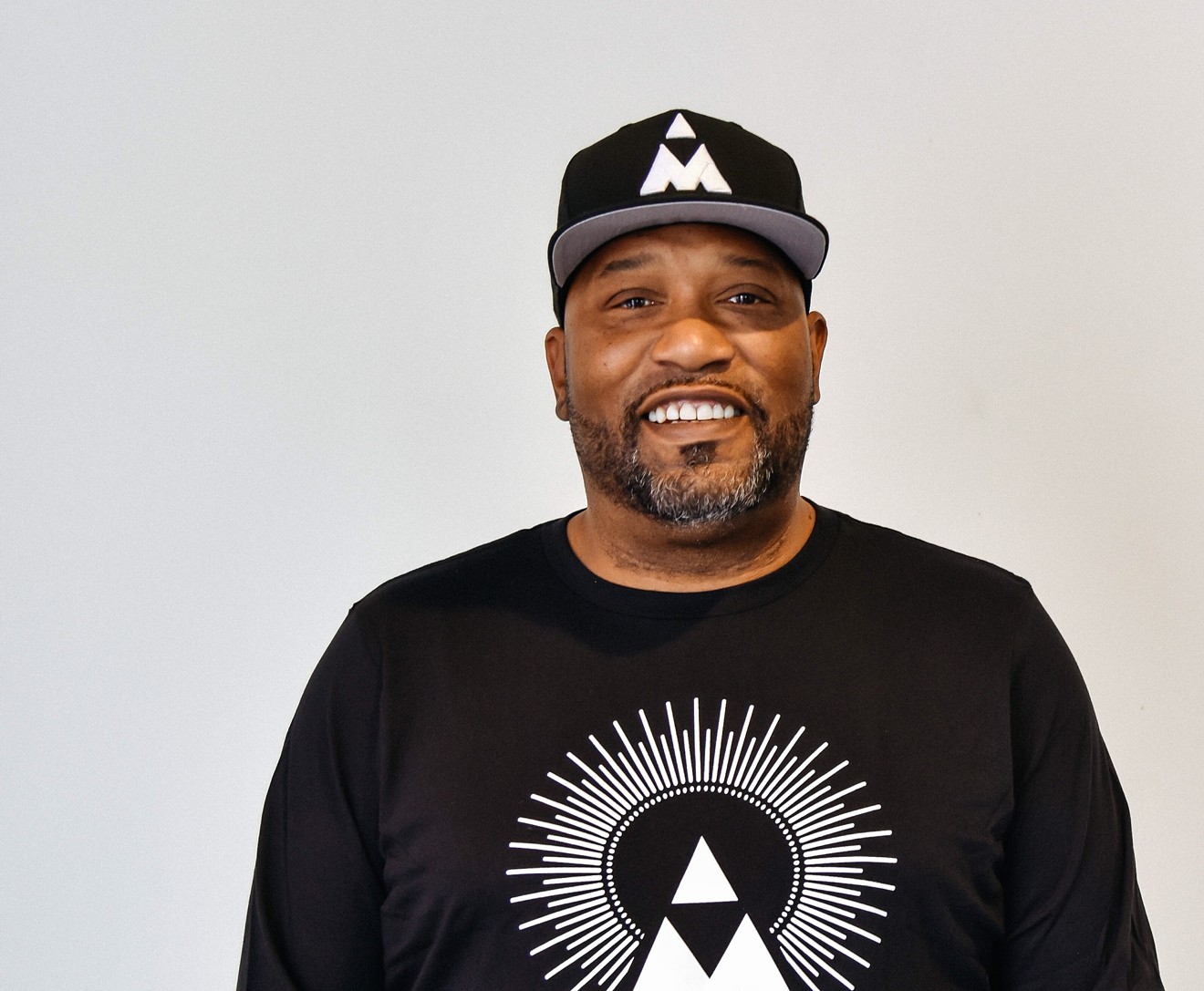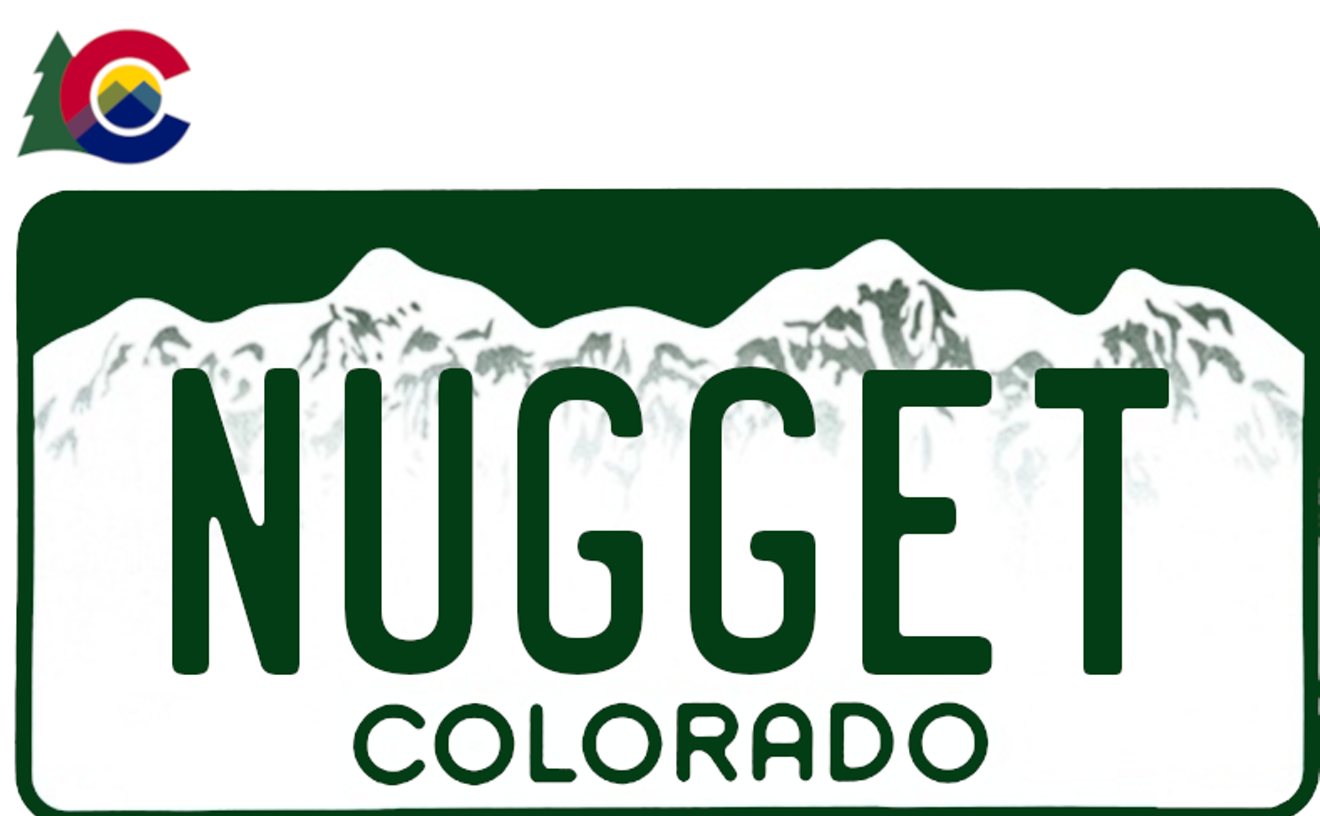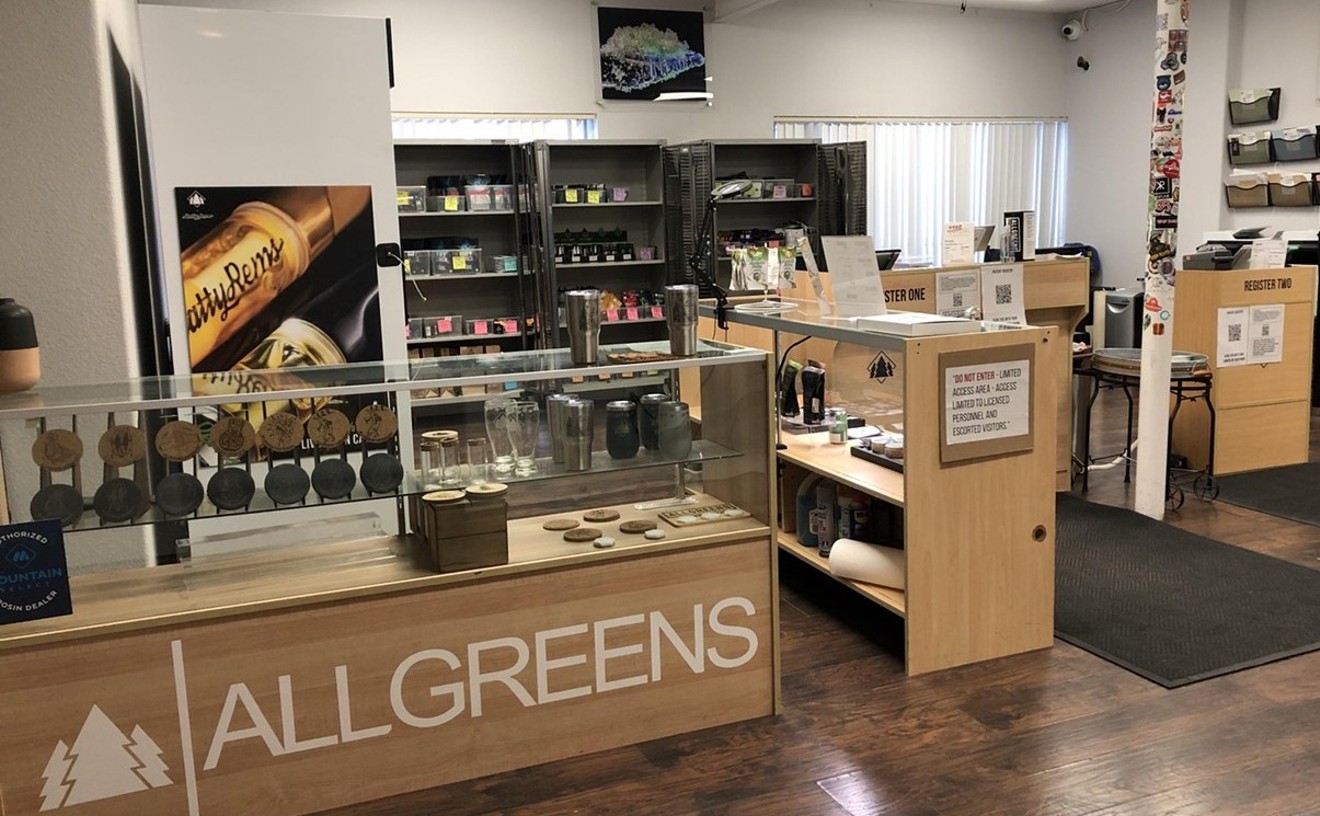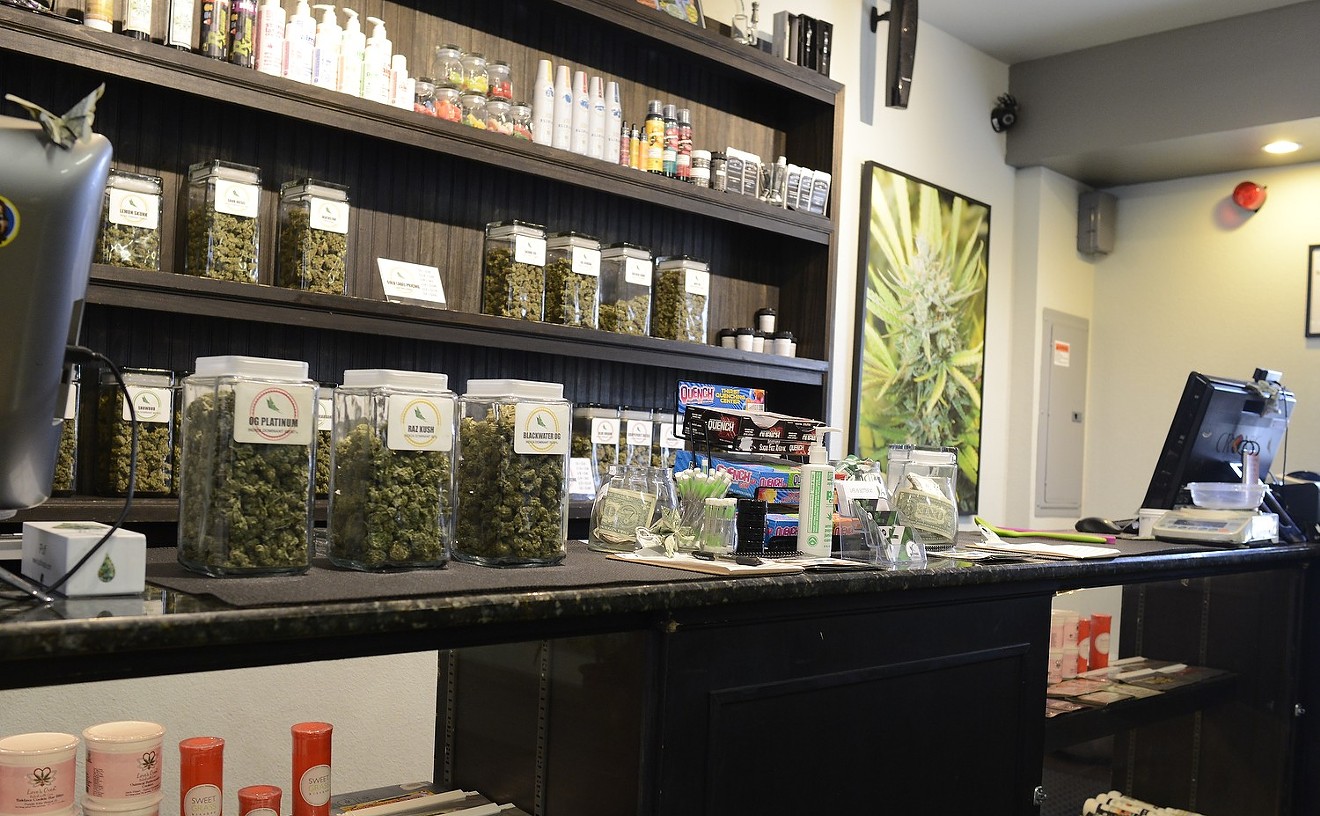It's not every day that hip-hop royalty comes to town for a sit-down about cannabis with Denver's mayor, but that's exactly what U.G.K.'s Bun B did on April 15, when he interviewed Mayor Michael Hancock about Denver's highs and lows with legal pot. An occasional correspondent with VICE, Bun B came armed with research, asking Hancock about the city's struggles regulating social pot use and how to right old convictions left from the War on Drugs.
Before he flew back to Houston to record his latest album, TrillStatik (and before he shot an armed intruder trying to rob his home), the Underground King sat down with us to talk about his views on cannabis legalization, finding weed on tour, reconciling with his past, and a music career that's built hits with Jay Z and helped build Southern hip-hop into what it is today.
Westword: Being from Texas, what do you think of Denver or other cities with legal cannabis when you visit? Is there anything you'd change?
Bun B: I think they're doing a good job here, considering the mayor isn't necessarily the biggest proponent of it. I think they're structuring it the best way they can for the participant and non-participant. You're obviously going to have a group of people who want to participate in this culture, but that's not going to be as large as the group of people who don't. You've got to manage all of these egos and different personalities, and I think Denver's done a great job so far.
I think public consumption is going to be the issue to test this administration as much as anything, but the fact that he hasn't vetoed any bills and that they're open to having this conversation is comforting. That 500-foot setback is going to be a problem. It's 1,000 feet now, and 500 is a lot, so maybe they're going to meet somewhere between 600 or 800 feet or something? He's got two houses that he's trying to please right now, but whatever happens here kind of dictates what happens in other cities in America. Other cities are still watching how Denver navigates these waters.
How does Denver's cannabis stack up against other cities?
I think a lot of people come to Denver for tree, but the wax and shatter game is really strong here, as well. They offer everything for everyone here; however you want to consume it, it's available here. But I will say that the wax here is pretty potent. I don't know if it's the elevation or where they're growing it, but it's strong. L.A. may be more ahead of the tree game, but in terms of tricks of the trade, I think Denver has really excelled in that. There's a lot of great R&D happening in Colorado right now.
Has finding cannabis while touring become easier now that it's legal in more states?
Because I've been traveling for so long and have a lot of longstanding relationships, I know all the seedy guys in non-legal states and whatnot, so getting it on the road hasn't really been a problem. But now that there are places that are legal, the places that aren't legal have been cracking down more on people who bring it in. I don't feel as comfortable as I used to.
Now I'm in Denver, having a great time — but then I have to go back to Houston today and be more careful about what I'm doing and how I'm doing it. I can go to a beach or a city for good food, but it's comforting in America to have a city like this to just visit and legally consume, and have a great time with it.
How far away do you think Texas is from legalizing?
I wouldn't leave, so the best thing for me is to be more adamant on the legalization aspect, just keep trying to push that line in Texas. Based on how red of a state we are, and being part of the Bible belt, that isn't going to happen for us as soon as it might for other states, but I think as they see how cities like Denver, Seattle and Portland manage these industries and how they contribute to the bottom line for taxes, I think that makes legalization a little more appealing. As we get young people in our state House and Senate, we might have more of an opportunity, but our current governor and lieutenant governor are not down with this. They're real Jeff Sessions-type guys with drug policy. We're in the South, so it's going to be a while, but as it becomes more prevalent throughout the country, our chances are getting better.
Cannabis has carved out such an important space in hip-hop, arguably more than any other music genre. Why do you think that is?
I think it's cannabis use in music, in general. It's always been a partner of music and culture. If you look at the places where marijuana used to live. Some of those Dew Drop Inns and back-alley joints — that's kind of where hip-hip was born and still lives today. It's reflective of society, and it always has been. Hip-hop has always been an underdog, kind of like how jazz and blues were the underdogs of their times. Marijuana was such a big part of both of those cultures, and it forms a lot of who were are in the South — blues, specifically. It forms a lot of us as artists, even if you don't play an instrument.
We're in an industry where harder drugs were never acceptable throughout the practitioners, whereas maybe rock music or jazz had a little more connectivity to harder drugs. Hip-hop was never really a part of that. If I'm going to be fuckin' with heroin, I'm going to sell it. I'm not going to use it, because a lot of us come from an inner-city environment where we see the effects of harder drugs on a family and our communities. A lot of us have real negative connotations with the harder stuff, but marijuana has always been a part of hip-hop culture: Breakdancers use it, beat boys use it, graffiti artists use it, DJs use it. Everyone uses it.
How does cannabis help you creatively?
It puts me in a space where my mind is slower. I'm one of those people with a mind that's always running 100 miles an hour. It helps me slow down my thought process and grab the thoughts I want to get a hold of instead of letting them fly by really fast. Cannabis helps me manage the moment more than anything, so I can be more in touch with myself and give a better perspective.
A lot of your music talks about illicit drug use and sales, and the life that comes with it. How do you balance that period of your life with your current political and social efforts?
As you get older, the context of the music tends to change. When I was eighteen, I really had no priorities, so my music was a lot looser and wilder. I wasn't really worried about the repercussions, because I didn't have a family or any kids. I was only responsible for myself. I was ready to deal with the ramifications of whatever happened to me, but now I have a family and employees that I'm responsible for. I also have a base of supporters that have followed me for years, and we're all getting older and becoming more responsible as adults with different priorities. For me to still live in a young person's world, that would be counterproductive to who I am and my personal growth.
I feel like if you were eighteen when I was eighteen, and now you're 46 when I'm 46, then your life has probably changed drastically. The things that you might've indulged in at a certain level has probably reduced dramatically, maybe to the point where you don't even indulge in them anymore. For me to still have that connection with the people who have been part of this ride for 27 years, I need to be practical about how I'm connecting with them as far as being a mature adult, parent, grandparent and whatnot. I'm not trying to relive my youth. It was wild, it was fun, and I got out alive. Now it's about how we rectify some of the things we've done and some of the life choices we've made with this new path of life: what we hold on to, what we don't hold on to, and how we stay true to who we are as people.
Do you think most rappers share that outlook as they get older? Hip-hop is still relatively young as a music genre, and we're just starting to see its greats age.
Yeah. Hip-hop is one of the younger forms of music in the country, and it's still looked at a certain way socially sometimes. But I think we've come a long way in representing ourselves. We've shown that a lot of us are deeper than just music, and that we can affect change in this world. Look at Jay Z and his prison reform. It'd be easy for him to just sit back and be rich, but he realized he had a certain level of power and influence, and he's using it in a positive way. As we all get to certain points in our lives and see the mistakes we made and situations we were engulfed in when we were younger, and then we get older and break out of those old practices and mindsets, we realized that there was a certain level of power and impact with this music. If we put messages in the music, then people will respond to it, so now we've reached a new age of people who are using their music to influence a certain base. It's a transition period that most, but not all, artists get to, and a lot of them make the right decision when they get to that place.
A lot of us are educated about these social issues that are impacting our communities. For us, the best way to get those messages across was initially through music, but now we're realizing that with all this other media, music isn't the only platform we have. We have social media, we can go out and do a podcast or interviews, or even actually sit on the floor of state and federal legislatures to speak about some of these things. It's a beautiful place for hip-hop to be in.
Have you noticed a gradual change in the way politicians or the mainstream media have treated rappers?
Absolutely. The age of elected officials is getting younger, but even I'm 46, so if you're in your late forties or early fifties, you still grew up around that culture. They're more receptive to people who represent that culture, and for some representatives, their lives tend to mirror a lot of people in hip-hop culture. Look at [New York Congresswoman] Alexandria Ocasio-Cortez: she's under thirty and from the Bronx. She is hip-hop.
We have a lot of people in public office now who didn't necessarily see themselves as being built for a political lifestyle, but seeing our president with no frame of reference still get elected to the highest office in the country will make people want to throw their own hats in the ring and see what happens.
Which rappers are actually smoking as much weed as they claim to?
That's a good question. Snoop Dogg is definitely smoking as much weed as he says he is. B-Real [of Cypress Hill] is smoking as much weed as he says he does. Curren$y and Wiz Khalifa are constantly smoking weed. Killer Mike is celebrating as many 4/20s as he can find, and his point of view is that it's always 4:20 somewhere. And this is all from personal interaction, by the way.
What are some records that you've made that still move you when they come on? Do any projects stand out among decades of work?
Big Pimpin' was one of those records. It's funny how it all came together. We had a very strong grassroots following that we'd built up; we'd released Dirty Money, and it went gold with no videos or promotion. So Big Pimpin' put us on the radar of a lot of artists who weren't necessarily part of our movement at the time. Jay Z knew we were on the come-up, and that it'd be good to ingrain himself with our audience.
It worked twofold: A lot of his audience that wasn't familiar with us got exposed to our music; it also helped him out in our world of fans. They knew who Jay Z was in Houston, but they just weren't bumping him like that. So he called us. It was definitely a good move for both of us, and we benefited greatly from it. It's still the most played record of my career...and his, for that matter.
Damn. I was hoping that would be International Player's Anthem.
That one has a crazy story, too. It was initially a record with us and Three 6 Mafia, but because of their Oscar win, they were in renegotiation and got into it with the record company. Because of that, they couldn't be on the record as artists, because their production and artist deals were different. They got that version released eventually, but it didn't make our album.
So then the record went out on a sampler, and Big Boi and Andre [3000] got hold of it separately and wanted to be part of the record — even though they weren't recording together at the time. But because Outkast and U.G.K. were both on the same label at the time, we were able to put it out. The rest is history.
[
{
"name": "Air - MediumRectangle - Inline Content - Mobile Display Size",
"component": "12017618",
"insertPoint": "2",
"requiredCountToDisplay": "2"
},{
"name": "Editor Picks",
"component": "17242653",
"insertPoint": "4",
"requiredCountToDisplay": "1"
},{
"name": "Inline Links",
"component": "18838239",
"insertPoint": "8th",
"startingPoint": 8,
"requiredCountToDisplay": "7",
"maxInsertions": 25
},{
"name": "Air - MediumRectangle - Combo - Inline Content",
"component": "17261320",
"insertPoint": "8th",
"startingPoint": 8,
"requiredCountToDisplay": "7",
"maxInsertions": 25
},{
"name": "Inline Links",
"component": "18838239",
"insertPoint": "8th",
"startingPoint": 12,
"requiredCountToDisplay": "11",
"maxInsertions": 25
},{
"name": "Air - Leaderboard Tower - Combo - Inline Content",
"component": "17261321",
"insertPoint": "8th",
"startingPoint": 12,
"requiredCountToDisplay": "11",
"maxInsertions": 25
}
]













